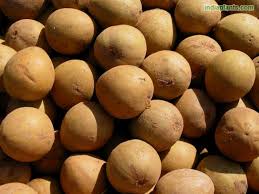Sapota (Chikoo) Benefits :
The name ‘sapota’ might not be familiar to most of us. Sapota is another name for the fruit better known as ‘chikoo’ or ‘chiku’ in Hindi, ‘sapota’ in Telugu, ‘chikku‘ in Marathi, ‘cappotta‘ in Tamil and ‘sapeta’ in Bengali. When we say sapota, we are basically referring to the tropical evergreen tree that bears this fruit. Sapota is a delicious calorie-rich fruit belonging to the category of fruits like mango, banana and jack fruit. Its other names are nose berry, sapodilla plum, chickoo sapote etc.
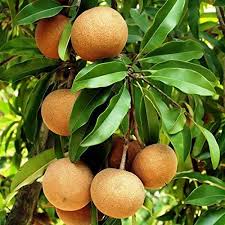
Being rich in calcium, iron and phosphorus, sapota greatly helps in enhancing and strengthening the bones. Copper is essential for the growth of bones, connective tissue, and muscles. The deficiency of copper increases the chances of osteoporosis, muscle weakness, low strength, breakage, and weak joints
Coming to the point, sapota offers numerous benefits for skin, hair, and health – something we have covered extensively in this post. Keep reading to know
The heady sweet aroma of sapota is unmistakable, with its fleshy brown skin and grainy sweetness on the inside. It’s quite easy to either love the sapota or hate it. But taking the middle path, we’re not quite sure.
We have something to thank the Spanish for. Had it not been for them, the chickoo, chikoo or sapota would have perhaps never come to India.
In India, the sapota is grown in many states – Karnataka, Gujarat, Maharashtra, Tamil Nadu, West Bengal and Andhra Pradesh. The varieties of sapota in India have funny names – Kali Patli, cricket ball, Baramati, Pili Patli, Dwarapudi, Chhatri and so on. Now while the fruit isn’t really cooked, or even used in salads (except for maybe fruit salads), probably due to its supremely dominating flavours, the sapota can be blended into milk or yoghurt and had as a smoothie. Or you could make a jam out of it too. There are quite a few interesting recipes out there, from chickoo halwa, kheer, to even barfis. “There’s a reason why mangoes and sapotas come out during this time. It has benefits, so don’t ignore them,” she would say.
And she was right. While none of us cared about the health benefits of the fruit while growing up, it’s important to know why you should eat a few sapotas every time it’s in season.
Sapota – An Overview
T It has 2-5 big, black, shiny bean-like seeds in the centre. The unripe fruit has a hard surface and white pulp due to its high content of latex. The latex content reduces as the fruit ripens and its flesh acquires a brown colour.
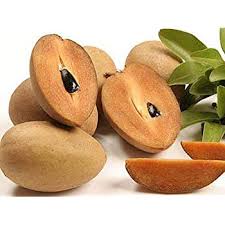
The wide array of vitamins, minerals and antioxidants found in the sapota fruit makes it an amazing choice for healthy and glowing skin. Thus, this article will be incomplete without talking about the skin benefits of this tasty fruit.
- Sapota fruit helps to make your skin glowing, thus reducing your requirement for skin care products to enhance your natural skin texture and complexion. The Vitamin E in this fruit moisturizes your skin, thus giving you healthy and beautiful skin. Hence, eating sapota fruit is good for the skin.
- Sapota fruit is rich in antioxidants. Therefore, it acts as an anti-ageing agent by eradicating free radicals in the body which are responsible for enhancing the ageing process. It is also effective in reducing wrinkles.
- The seed kernel oil of sapota is used as a skin ointment. The residue of this seed, after the extraction of oil, can be applied as a poultice on painful skin afflictions.
- The milky sap of the sapota plant can be used to remove warts and fungal growth on the skin.
- The combination of Vitamin A and C beautifies the skin by imparting it with a healthy glow.
Hair Benefits Of Chikoo/Sapota
As we all know, a proper supply of nutrients to our body and proper absorption of these nutrients is inevitable for maintaining good hair health. Hair problems are a result of exposure to harmful chemicals, unhealthy lifestyles and inadequacy of certain essential nutrients in our diet. Being loaded with essential nutrients, sapota has enough to contribute towards healthy hair.
The benefits of sapota for hair are as follows:

- Oil extracted from sapota seeds helps in moisturizing and softening your hair, thus making it more manageable. It imparts sheen and is considered excellent for curly hair. It gets absorbed easily without leaving a greasy residue.
- The sapota seed oil nourishes the scalp by alleviating irritated skin conditions and promotes healthy hair growth. This oil is considered to be effective in treating hair fall caused by seborrheic dermatitis.
- The seeds of sapota can be grounded to make a paste and mixed with castor oil. This mixture should be applied on the scalp and washed off the next day. This makes your hair smooth and the problem of dandruff can also be controlled.
Health Benefits Of Chickoo/Sapota
Sapota is one of those fruits which are great for health besides being extremely delicious, thanks to the wide array of nutrients contained in this fruit. The various health benefits of sapota are given below:
Good for the Eyes:
Sapota contains a high amount of Vitamin A. According to research, Vitamin A helps in improving vision even during old age. Thus, in order to get or maintain good vision, you must try eating sapota fruit.

Did you know that? A sapota a day might just keep the eye doctor away. Okay maybe we are exaggerating a bit, but the vitamin A does keep our eyes healthy, and you might see the benefits of it when you’re a lot older. And as for vitamin C, its benefits are best known. It keeps your immunity strong, skin in good condition, kills free radicals, prevents heart disorders etc.
Source of Energy
Sapota is rich in glucose which provides instant energy to the body. Athletes require loads of energy and hence, are recommended to eat sapota fruit.
The natural fructose and sucrose content in sapota can give your body a lot of energy. So if you have a busy day ahead, grab a sapota before you leave home for an energy boost.
Anti-Inflammatory Agent
The high content of tannins makes sapota or chikoo an important anti-inflammatory agent. In other words, it helps in improving the condition of the digestive tract through prevention of diseases like esophagitis, enteritis, irritable bowel syndrome and gastritis. It also reduces inflammation by reducing any swelling and pain.
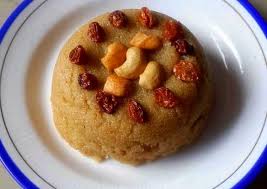
Sapota has a high content of tannin, which in turn works as a natural anti-inflammatory. Again, eat regularly to see results.
Prevention of Certain Cancers
Vitamins A and B help in maintaining the health of the mucus lining of the body and the texture of the skin. The antioxidants, dietary fibre and nutrients found in sapota provide protection against cancer and tightly bind the carcinogens (toxins) to protect the mucus membrane of the colon. Vitamin A provides protection from lung and oral cavity cancers.
Additional amounts of calcium, phosphorus and iron are required by bones to increase their endurance. Being rich in calcium, iron and phosphorus, sapota fruit greatly helps in enhancing and strengthening the bones.
Healthy Bones
Did you know that this delicious fruit is rich in calcium, phosphorus, and iron, and therefore keeps your bones strong? If you’ve eaten the sapota regularly, you might not need supplementary pills later in life. It is a good source of minerals like iron, folates, calcium, magnesium, potassium, zinc, copper, phosphorous, selenium etc which are very essential for facilitating various body functions including proper bone growth.
Relief From Constipation
Sapota fruit provides a high amount of dietary fibre (5.6/100g). Thus, it is regarded as an excellent bulk laxative. The fibre content provides relief from constipation. It supports the colons’ membrane and makes it resistant to infections.

Benefits During Pregnancy
Having a high dose of carbohydrates and essential nutrients, sapota is extremely beneficial for pregnant and lactating mothers. It helps in reducing weakness and other symptoms of pregnancy such as nausea and dizziness.
Haemostatic Properties
The sapota herb is known for its haemostatic properties i.e. stopping blood loss. Thus, this herb is beneficial in reducing bleeding in case of piles and injuries. The ground seeds can be applied as a paste for alleviating stings and insect bites.
Anti-viral and Anti-Bacterial Properties
Due to the presence of polyphenolic antioxidants, sapota is found to have several anti-viral, anti-parasitic and anti-bacterial properties. The antioxidants prevent bacteria from entering the human body. Vitamin C destroys harmful free radicals whereas potassium, iron and folate, niacin and pantothenic acid facilitate the proper functioning of the digestive system.
Anti-Diarrheal
Sapota is regarded as an anti-diarrheal due to its purgative properties. A decoction made by boiling this fruit in water can cure diarrhoea. It also helps in the alleviation of piles and dysentery.
Mental Health
Being a potent sedative, sapota fruit helps to calm the nerves and alleviate stress. Thus, it is advisable for individuals suffering from insomnia, anxiety and depression.
Cold and cough
Sapota fruit is effective in keeping congestion and chronic coughs at bay by removing the phlegm and mucus from the nasal passage and respiratory tract. Thus, it helps in the alleviation of colds and coughs.
Kidney Stones
The crushed seeds of this fruit act as a diuretic, thus helping to expel bladder and kidney stones. It provides protection against kidney diseases as well.

Weight loss
Sapota fruit indirectly helps in weight loss and prevents obesity by regulating the secretion of gastric enzymes, thereby regulating metabolism.
If you’re on a diet, sapota might work to rid your body of water retention. It regularises your metabolism and works to your advantage if you’re trying to lose weight.
As a Detoxifying Agent
Sapota acts as a diuretic and thus helps in removing waste materials from the body through frequent urination. It prevents edemas or water retention by maintaining the water concentration within the body.
Tooth Cavities
The high latex content of sapota fruit can be used as a crude filling for tooth cavities.
Other Health Benefits
Magnesium contained in sapota is beneficial for blood and blood vessels whereas potassium helps in regulating blood pressure and promoting healthy circulation. Folate and iron prevent anaemia. Sapota helps in strengthening the intestines and in improving their performance. In short, eating sapota or chikoo fruit helps in developing body resistance against many infectious diseases.
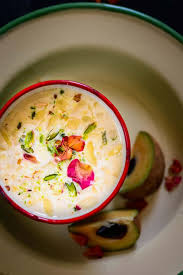
For best results, the sapota fruit should be eaten ripe. But you can also choose to have the sapota juice if you please. Raw sapota fruits are extremely bitter due to the high content of tannin and latex and can cause mouth ulcers, itching sensation in the throat and difficulty in breathing.
Eating the sapota regularly helps to remove toxins from your body, and is thus great for your skin and hair; it keeps them healthy and moisturised. In fact, sapota is known as a ‘happy’ food; it helps promote the production of collagen and prevents the growth of deep wrinkles. You’ll thank it later when you’re older.
Nutritional Value Of Chikoo/Sapota
Sapota fruit is a storehouse of nutrients, vitamins, minerals, glucose, tannins and calories.
| PRINCIPLE | NUTRIENT VALUE | PERCENTAGE OF RDA |
|---|---|---|
| Energy | 83 Kcal | 4% |
| Carbohydrates | 19.9 g | 15% |
| Protein | 0.44 g | <1% |
| Total Fat | 1.10 g | 3.5% |
| Cholesterol | 0 mg | 0% |
| Dietary Fiber | 5.3 g | 14% |
| VITAMINS | ||
| Folates | 14 µg | 3.5% |
| Niacin | 0.200 mg | 1% |
| Pantothenic acid | 0.252 mg | 5% |
| Pyridoxine | 0.037 mg | 3% |
| Riboflavin | 0.020 mg | 1.5% |
| Thiamin | 0.058 mg | 5% |
| Vitamin A | 60 IU | 2% |

Sapota is also rich in antioxidant vitamins like Vitamin C and A. Vitamin C provides resistance against infection and prevents the formation of harmful free radicals whereas, Vitamin A helps in the promotion of vision and protection from lung and oral cavity cancers. The high content of Vitamin B prevents stress and fatigue and Vitamin E is beneficial for the skin.
Last but not the least; sapota is a great source of protein which is vital for the growth of our body. Being rich in glucose, it is an energy-giving food.
